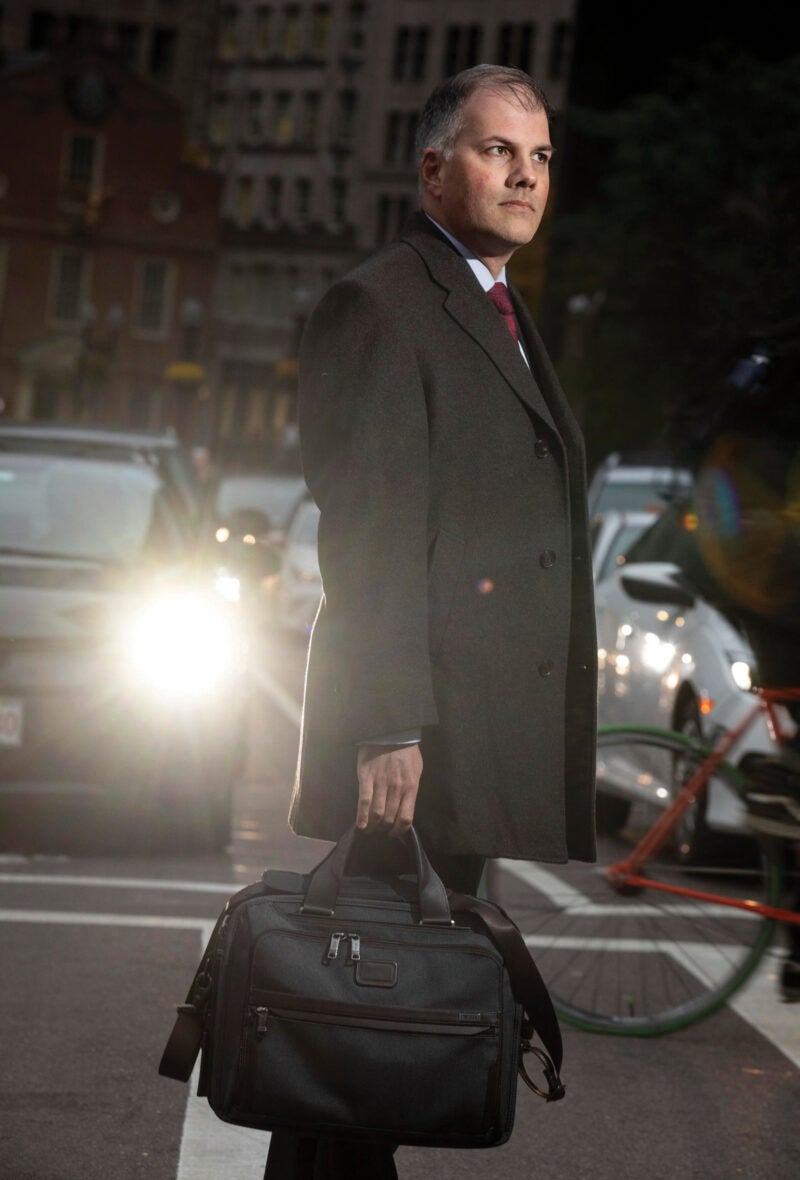Five cases argued before the U.S. Supreme Court. Twenty-two years of work as a lawyer. And still, Mark Fleming will never forget the woman from Congo, the first client to trust him with her life.
It was his 2L year. Fleming, a Canadian, had enrolled in the Harvard Immigration and Refugee Clinical Program with a personal interest in immigration law; he was a green-card holder himself. But he also found the field intellectually interesting—a mix of constitutional law, administrative law, litigation, civil rights and international law. And there was no better guide to it than Deborah Anker.
“She’s just a phenomenal teacher,” said Fleming. “One really got the sense of somebody who had not only mastered this area of law from an academic point of view, but also understood the practice of it.”
At first, when Fleming and his client met in the cramped office, the client was shy and reserved. But Fleming knew her language—French—and began to speak it. From that point on, everything shifted.
“The client deserves—and should be given—a direct role. The result is better for it.”
She opened up. She asked to read the materials he prepared. She provided comments. It was a lesson he would carry with him throughout his career.
The client deserves—and should be given—a direct role,” he said. “The result is better for it.
Decades later, Fleming is a partner at WilmerHale, an appellate generalist who argues cases on everything from intellectual property to complex business disputes. But immigration cases remain a large part of his pro bono practice.
It’s a particularly tangled area of the law, he said, which means appellate courts are often setting the agenda on any number of issues, and disagreeing; occasionally, the matter moves up to the Supreme Court. Soon Fleming will argue his sixth case before that Court, United States v. Sineneng-Smith, challenging a statute that makes it a federal crime to “encourage” someone who is in the U.S. without immigration status to remain in the country.
“There’s no shortage of opportunity to find areas where you can actually make a difference,” he said.
In his first immigration case to reach the Supreme Court, Judulang v. Holder, the Court unanimously ruled that a Board of Immigration Appeals policy denying certain lawful permanent residents the opportunity to seek relief from deportation was “arbitrary and capricious.” The ruling affected thousands of people.
But Fleming was most concerned about one: his client, Joel Judulang. Before the Supreme Court agreed to hear the case, Fleming warned him it was a long shot. He advised Judulang to prepare to be deported any day.
“Hug your mother,” he advised his client.
Then came the break: The Court agreed to hear his case. In a move that impressed his lawyer, Judulang requested a copy of the Supreme Court’s notice, so that he could bring it to his check-ins with ICE officials, as proof that he shouldn’t be deported. He became something of a celebrity—the client with the case at the Supreme Court. Every time he checked in, ICE officials would ask how it was going, until the day he could finally tell them the good news:
We won.
View additional profiles from our story, Prepared for the Challenge, including:
